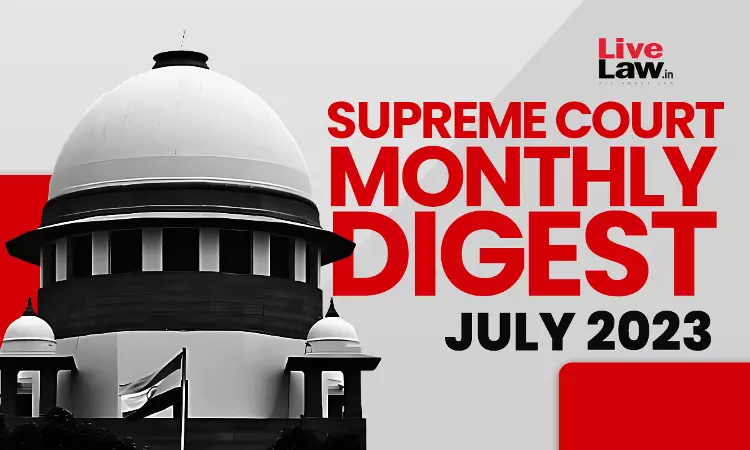- Home
- /
- Supreme court
- /
- Supreme Court Monthly Digest July...
Supreme Court Monthly Digest July 2023
LIVELAW NEWS NETWORK
1 Oct 2023 5:27 PM IST
SUBJECT WISE INDEXAdvocateSupreme Court 'shocked' to see lawyer filing Article 32 petition against state to recover legal fees. Vijay Kumar Shukla v. State of U.P., 2023 LiveLaw (SC) 523Armed Forces'Discipline is a non-negotiable condition of service in Armed Forces': Supreme Court dismisses appeal of suspended army driver who overstayed leave. Ex Sepoy Madan Prasad v. Union of India,...
Next Story



